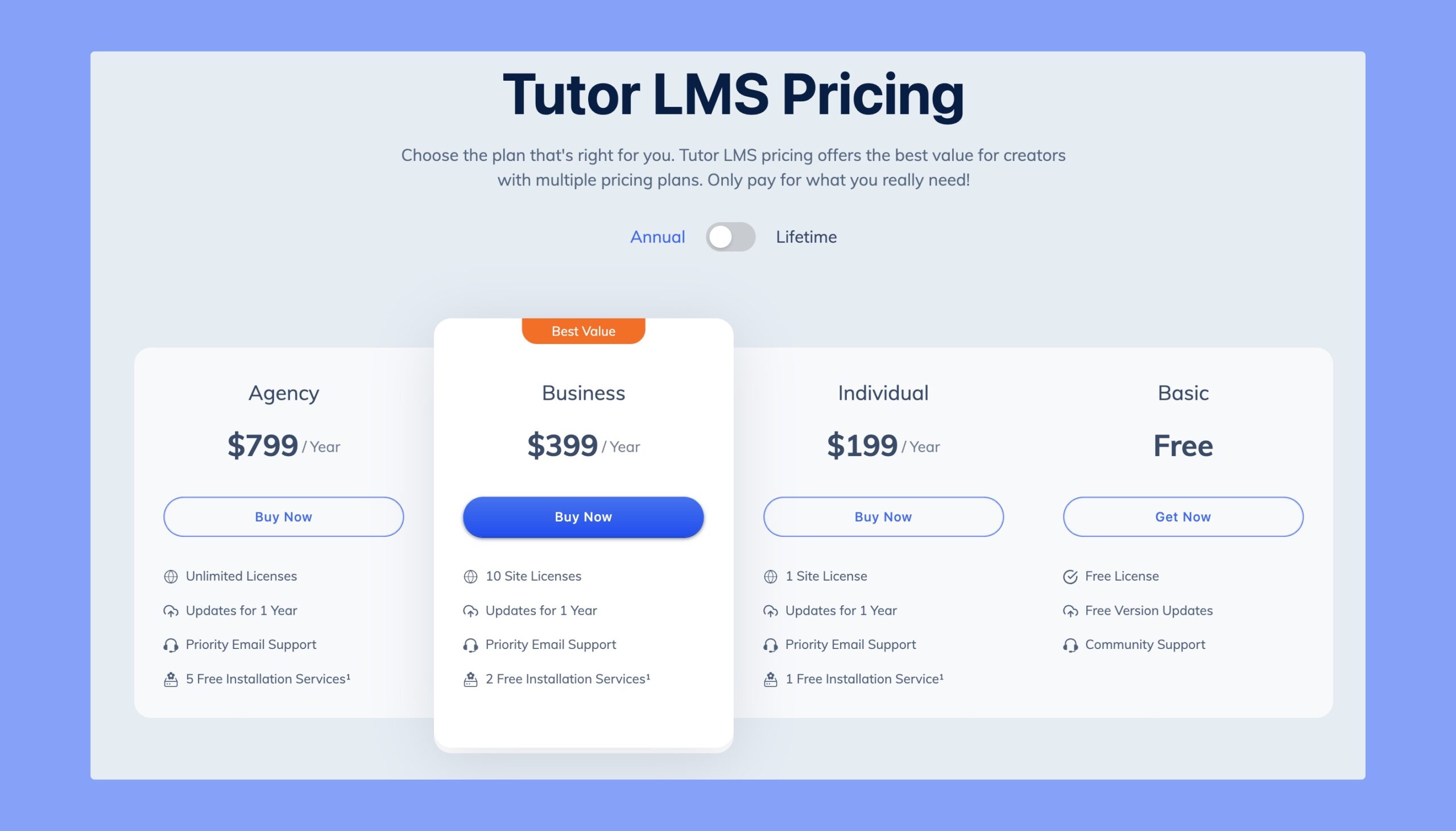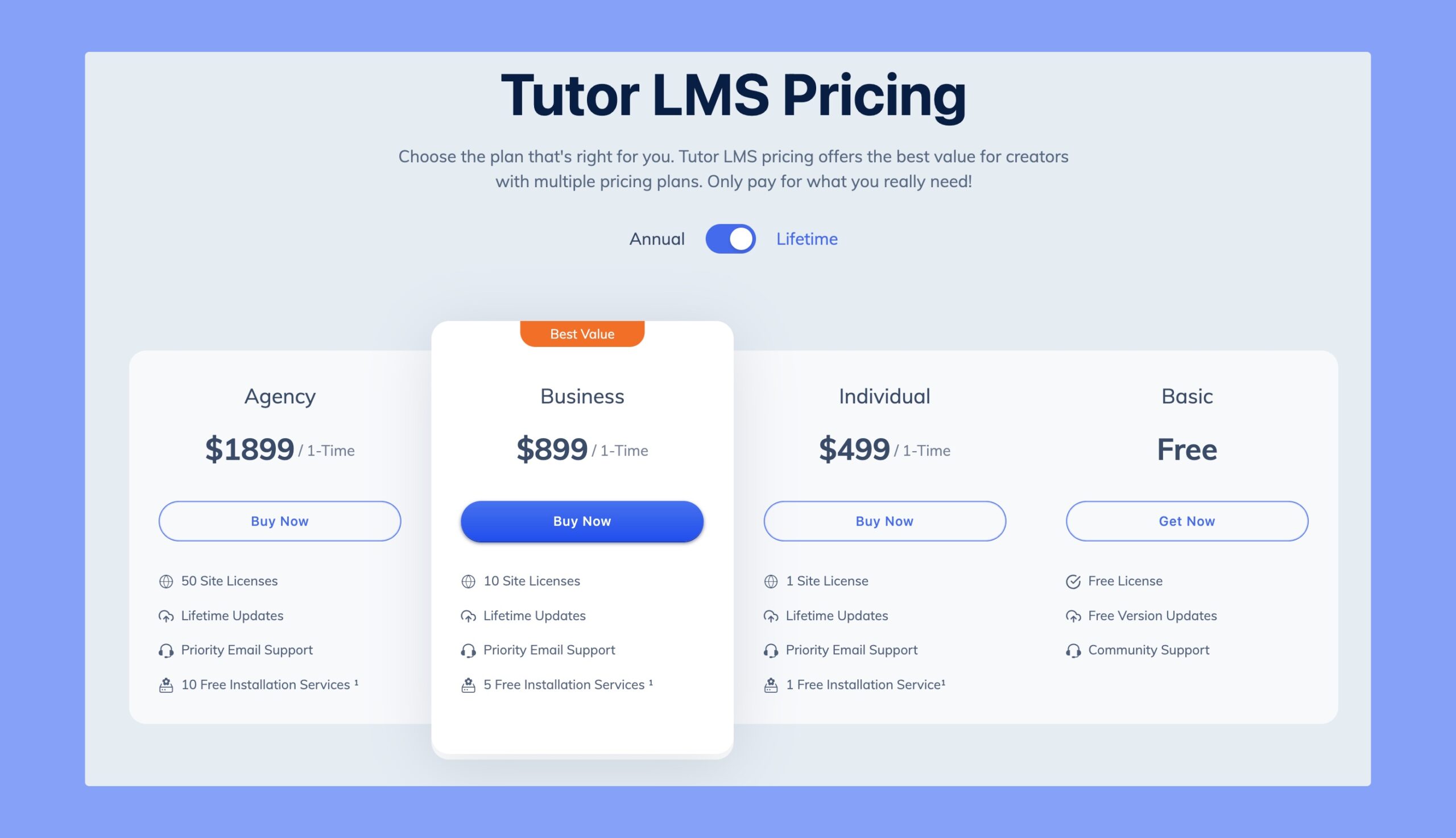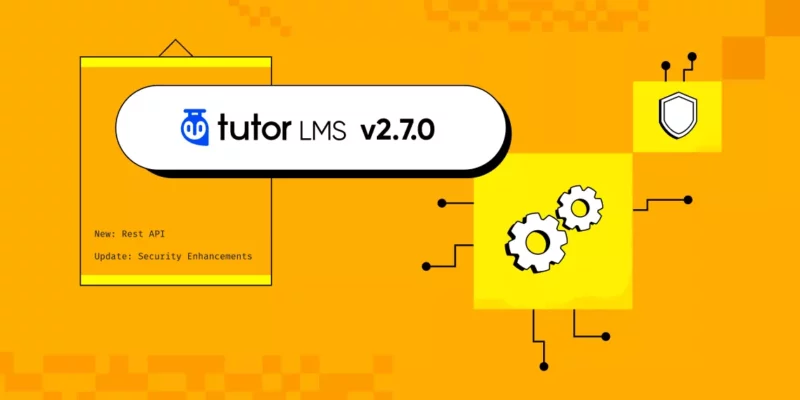Remember those messy stacks of handouts and textbooks? Or trying to find that one important assignment from weeks ago? An LMS can make those memories fade away! Picture a digital space designed just for learning. It’s where teachers and trainers can organize everything – think lessons, cool videos, quizzes, you name it.
It’s like your personal online learning hub. Need a refresher on that tricky math problem? Boom, it’s right there on the LMS. Got a question for your teacher? You can message them through the system. It even tracks your progress, so you always know how you’re doing.
If the term “LMS” makes you scratch your head, don’t worry! You’re about to get the full scoop: what it is, why it’s a big deal, and how you can make it work for your company. By the time you finish reading, you’ll be an LMS whiz.
Ready to dive in? Let’s begin.
What is a Learning Management System?
Imagine a very organized digital space packed with everything you need to learn. That’s an LMS (Learning Management System) in a nutshell! It’s like your very own online classroom or training center.
Teachers and trainers use it to share things like:
- Videos and presentations to explain tricky topics
- Fun quizzes to test your knowledge
- Assignments and projects where you can show off your skills
But here’s the best part: Everything’s in one place! No more digging through old emails or piles of notes. You can log into your LMS, find exactly what you need, and get going. Some even let you chat with classmates or teachers – kind of like school, but way more convenient.
Think of an LMS as your learning sidekick, always there to help you succeed!
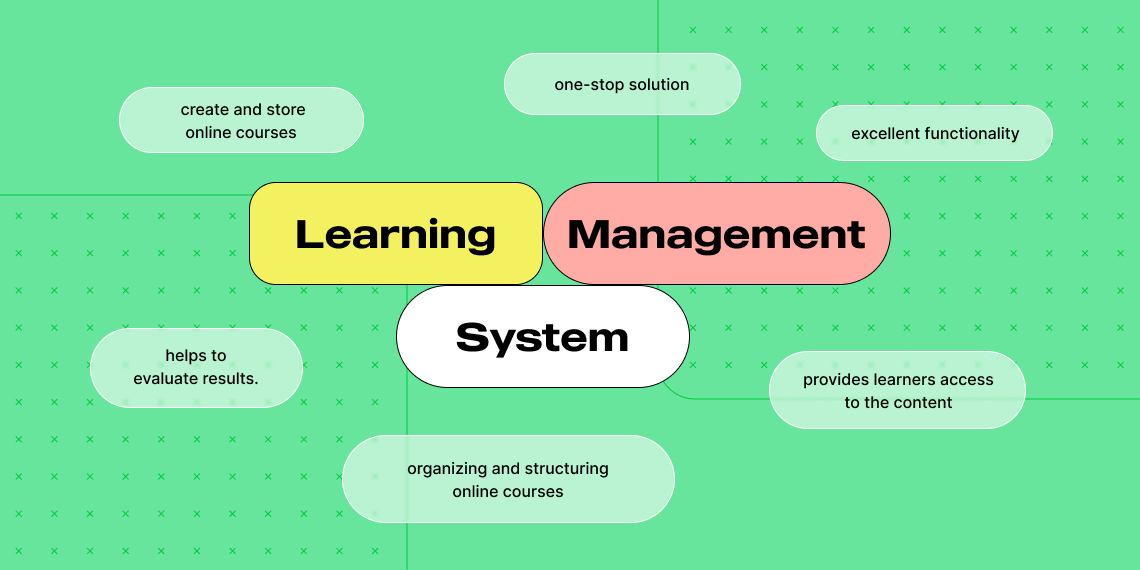
Who Needs a Learning Management System?
Learning Management System platforms are used in different industries and now have a global reach. The general adoption of Learning Management systems is sharply rising, and the LMS global market is expected to grow at a rate of 23% annually.
Anyone can use an LMS; some of the more frequent users are listed below:
- Businesses: Imagine getting all your employees up-to-speed on new software or safety rules. An LMS makes it easy! You can create online courses, track who’s completed them, and even issue certificates at the end.
- Schools & Universities: Teachers can ditch the stacks of handouts and put everything online. Students get 24/7 access to lessons, assignments, and even online discussions with their classmates. LMS for the win!
- Non-profits: Want to educate your community or volunteers? An LMS lets you create online courses or workshops that anyone can take. Get those awesome ideas out there!
- Anyone with a Passion for Teaching: People with the right expertise or knowledge use LMS to create and sell courses via the internet. This is a fast-growing segment and has gained vast popularity in a varied number of fields such as photography, workout regimens, cooking, etc.
What Are the Benefits of Using a Learning Management System?
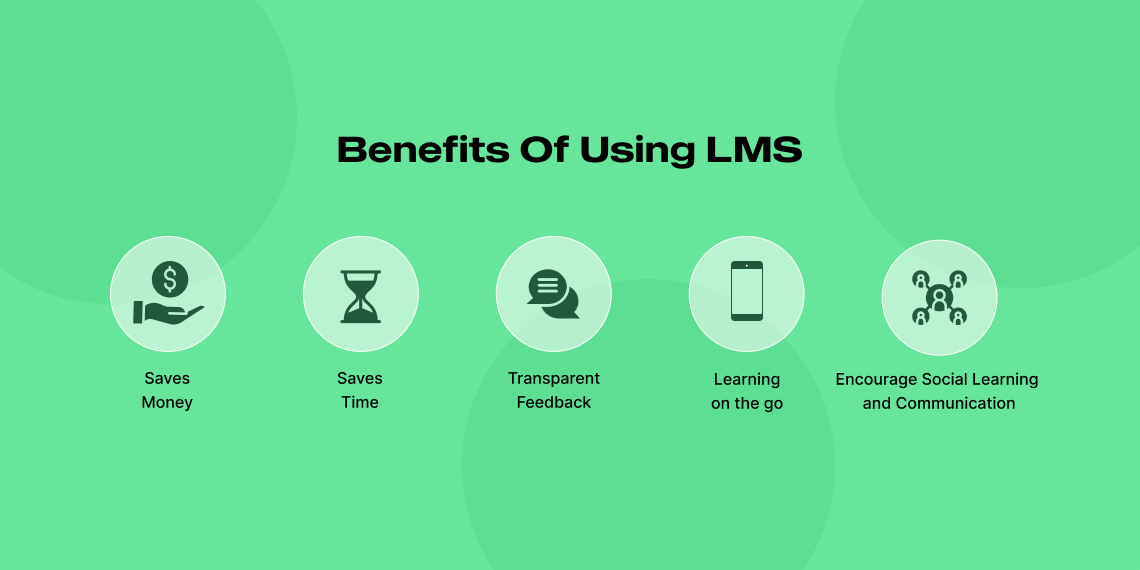
If you’re still wondering if an LMS is worth the hype, let’s break down the benefits:
1. Saves Money
Instead of hiring teachers or instructors for every classroom, LMS automates the learning process and provides educational institutes with an economical way to get courses and materials to their students.
Similarly, LMSs can reduce the dependency on physical venues for classes. Institutions will no longer have to expand venues to accommodate more students, saving on rent expenses. Less dependency on physical venues also means fewer instructional materials, desks, whiteboards, projectors, etc.
2. Saves Time
LMSs are like magic for busy teachers. They can automatically grade quizzes, handle tons of students at once, and keep everything organized. It frees up teachers to focus on actually helping students, instead of drowning in paperwork.
3. Transparent Feedback
Feedback is vital for improving a learner’s performance. An LMS streamlines the process of feedback. Teachers can easily share feedback on the LMS portal. Students and their guardians can access this, allowing parents to keep track of their child’s performance.
4. Learning Fits In Your Pocket
Who says learning has to be stuck in a classroom? A good LMS lets you access your courses on your phone or tablet. Perfect for squeezing in some studying on the bus or during a break. Students can also attend lectures, submit assignments and check their grades without access to a desktop or laptop computer.
5. Encourage Social Learning and Communication
A common misconception about eLearning is that it isolates students and keeps them from socializing. In reality, a well-equipped learning management system promotes interactions and social learning. Using an LMS, instructors can design group tasks, schedule group studies using video conferencing, share their screens, and hold community discussions in the forums.
What to Look For Before Choosing an LMS?
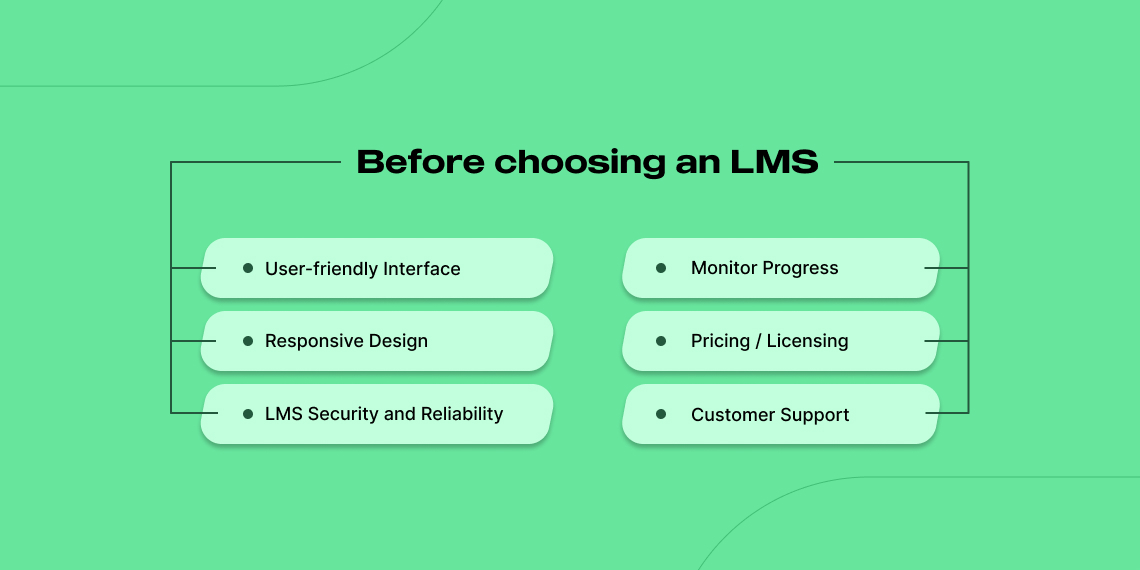
- Ease of Use: Your LMS should be a breeze to use. Imagine figuring it out without a giant instruction manual! Teachers are busy, and students shouldn’t feel lost. A good LMS makes learning fun, not frustrating.pen_spark
- Key Features: What do you really need? Some LMSs are packed with tons of features, while others are more streamlined. Focus on what will help you teach and your students learn – don’t overpay for stuff you won’t use!
- Responsive Design: Can people use the LMS on their phones or tablets? This is very important these days! A good LMS will adjust to any screen size, making life easier for busy students and teachers.
- LMS Security and Reliability: One of the biggest concerns in modern history is data confidentiality and security. It is valid for both personal data and fee payments. A security breach can result in a sharp decline in popularity and confidence in your services. Learners should not be able to log into each other’s accounts, and data should be kept secured at all times. When considering data security and reliability in an LMS, you need to consider :
1. Data storage location
2. User authentication
3. Data Access Control
So, check if the vendor company employs industry-standard data protection measures and a solid commitment to consumer data rights and confidentiality. - Monitor Progress: How will you know if everyone’s learning? A good LMS gives clear progress reports for students and teachers.
- Pricing / Licensing: Do your budget homework! Some LMSs are pricey, others are surprisingly affordable. Find one that delivers what you need without breaking the bank.
- Customer Support: When tech glitches happen (and they will!), you want to know help is available. Check out the support options offered by each LMS before making a decision.
Choose the Right CMS Platform
Choosing the right website platform is a big decision when setting up your LMS. Think of it like choosing the foundation for your house – you want it to be strong and easy to work with! A CMS (Content Management System) lets you build and manage your website without needing to be a coding whiz.
There are several CMS options out there, but one stands tall amongst the competition: WordPress. It’s the most popular website builder in the world for good reasons!
WordPress + Tutor LMS: A Match Made in Learning Heaven!
You know how some things are just better together? Think peanut butter and jelly or comfy socks and warm tea. Well, WordPress and Tutor LMS are like that for building amazing online learning experiences!
Tutor LMS is a powerful and feature-packed LMS plugin for WordPress. It turns your website into a complete learning powerhouse, letting you create fun courses, track progress, and even sell your knowledge online.
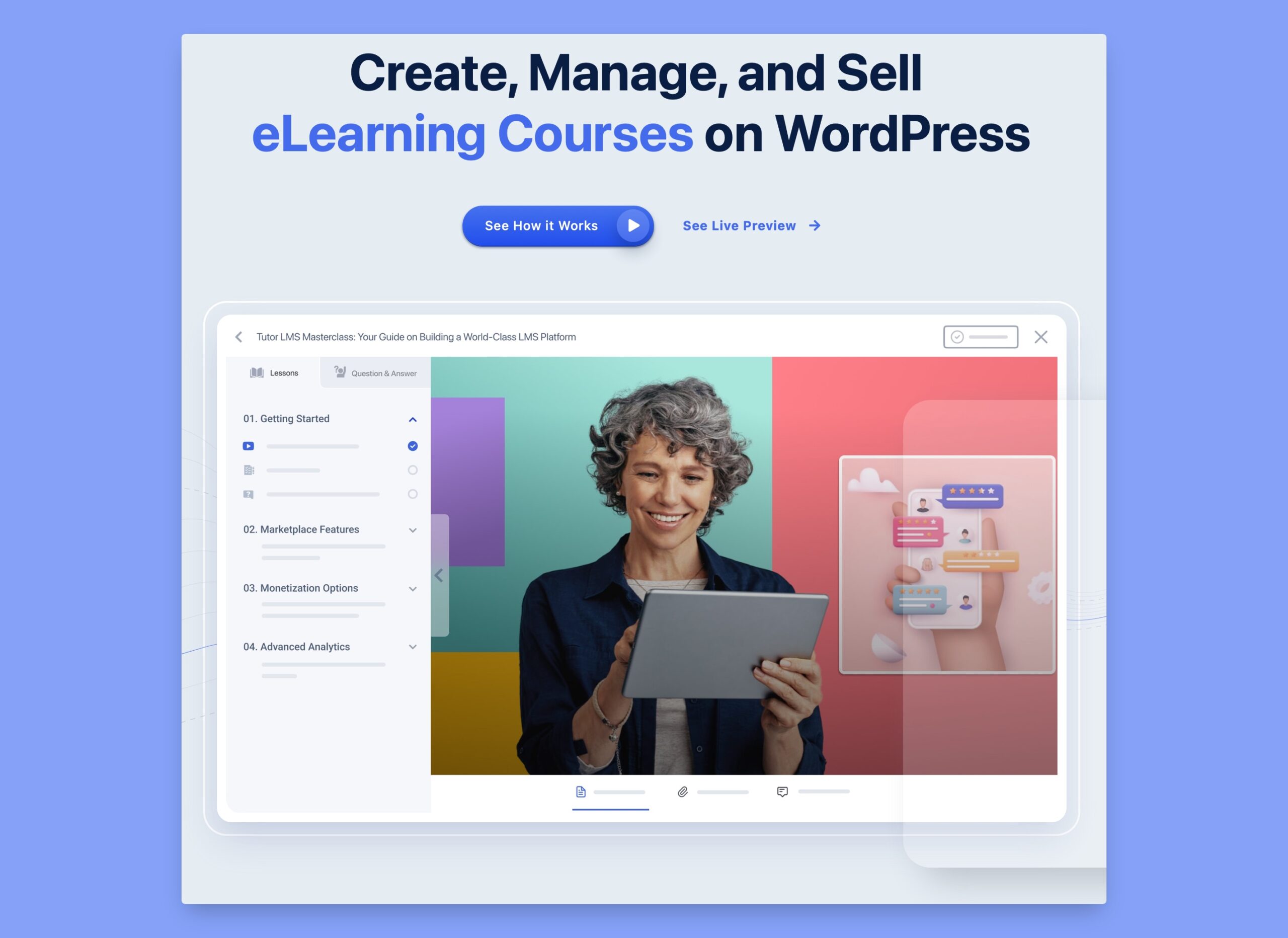
What Makes Tutor LMS So Special?
To provide a better overview of Tutor LMS, I have listed the most note-worthy features below:
- Intuitive Front-End Course Builder: Tutor LMS allows users to build their academic or training courses through an intuitive drag-and-drop tool. It also comes with a front-end course builder for a more user-friendly appeal, allowing instructors to create their courses without being in the backend WordPress panel. This is highly beneficial if you want your platform to have the least possible barriers to entry, as teachers or instructors don’t have to learn anything about coding or WordPress.
- Reports and Analytics: Quickly run reports and get an overview of your learner’s progress. Track enrollment, how students are progressing, and even earnings if you’re selling your courses.
- Task Assignments: Tutor LMS has an integrated assignment add-on allowing you to add assignments to your courses. Assignments are an excellent way to measure a learner’s understanding of course material and give constructive feedback.
- Multiple Instructors for Courses: Bring in multiple experts to build even richer courses for your students. This is a very productive way of maintaining a high level of engagement amongst learners and making your courses resourceful.
- Advanced Quiz Builder: Build exciting quizzes with different question types, time limits, and even randomize the questions to keep things interesting. Tutor LMS also supports various media (text, audio, video, and images), automated difficulty levels, quiz attempts, set the quiz time period, and much more.
- Drip-feed Lessons: Don’t want students to have access to everything right away? Drip-feed your lessons to unlock them gradually or after they’ve completed certain parts of the course.
- Quickly Sell Your Online Courses: Tutor LMS not only helps you create and organize your online courses; it also helps facilitate the marketing aspects of your eLearning business. Tutor LMS is designed to seamlessly integrate with other applications such as EDD, Paid Membership Pro, and WooCommerce, making it a breeze to sell your courses online.
- Gradebook: The Tutor Gradebook add-on allows you to introduce the grade point system for grading all the coursework. It has many features to let you configure the grading system to your preference.
How Much Does It Cost?
As we discussed earlier, pricing plays a vital role in the selection of an LMS platform and Tutor LMS knows that budgets matter. That is why they offer different pricing plans, including a free option to get you started! This level of flexibility in pricing is scarce in the industry and allows you to select the plan that best suits your objective. Not to mention with the paid version, you will get access to all available add-ons without any additional cost.
Your LMS Adventure Starts Now
Okay, so now you know the basics: what an LMS is, why they’re amazing, and how they can make learning experiences better. Whether you’re a teacher, a student, or a company looking to train employees, there’s an LMS out there for you!
So, what’s the next step? Here’s my advice:
- Think about your goals: What do you really want to achieve with online learning?
- Explore your options: Do some research, compare different LMS platforms, and look for the features that matter most to you.
- Give it a try! Many LMSs offer free trials, and if you’re using WordPress, I highly recommend checking out Tutor LMS. It’s powerful, easy to use, and a great place to start.
Ready to transform your learning experience? Go explore the amazing world of LMS.


